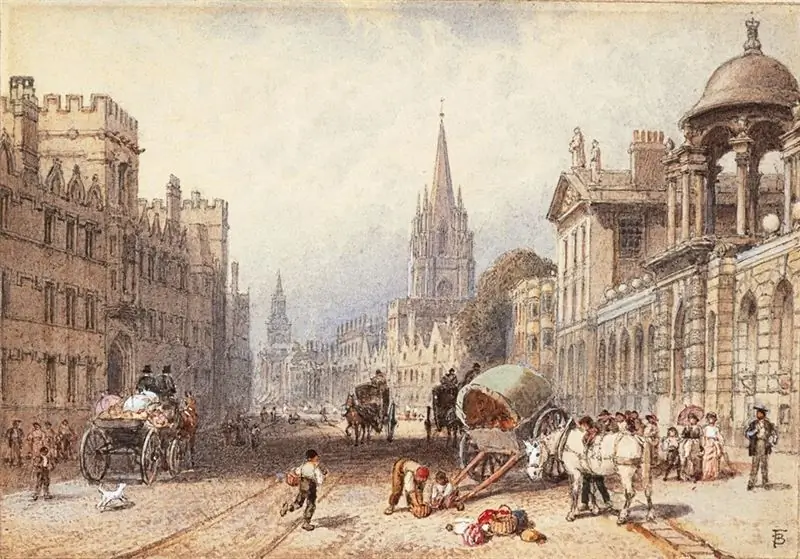
The name of this English city is translated primitive and ridiculous - "bullock's ford". They say that exactly such a picture - driving a herd of cows - was seen by the first travelers who gave such a place name to the area. The history of Oxford has become a special page in the world book of memory for a completely different reason. This city hosts the most famous university on the planet, which has given the world not only thousands of specialists in various fields, but also more than 50 laureates of the most famous - the Nobel Prize.
From the origins
Scientists have accepted the history of Oxford since 912, when this settlement first appeared in the Anglo-Saxon chronicles. It is specified that a monastery existed in these places, which means that the countdown of the time of existence must begin much earlier. By the way, it was the monastery complex that contributed to the fact that the now world famous university appeared in these places. In the initial plans of the church elite, there was a foundation of an educational institution where local priests could receive education.
This settlement became a real university city during the reign of Henry II. One legend is connected with this educational institution. When a large number of students died in a pogrom in 1355, a fine was imposed on the city. The residents paid the university a token amount over the next 470 years.
The history of Oxford, even briefly, cannot be told without the history of the university, just as the architecture of the city does not exist without the university buildings, many of which are masterpieces.
Scientists still have not come to a consensus about who founded this beautiful settlement on the banks of the Thames. Archaeologists echo historians, proving that people lived here in the Neolithic era. Mounds dating back to the Bronze Age prove that the territories were suitable for life.
Oxford during the Middle Ages
On the one hand, at this time the city was actively built and developed, on the other hand, troubles did not bypass it. The following sad events remained in the history of the city:
- the most terrible fire of 1138, which destroyed almost all buildings;
- the capture of Oxford by Empress Matilda in 1142;
- the plague of 1348-1350, which greatly reduced the number of urban residents.
In addition, the political situation could not be called stable - kings, queens, their heirs succeeded each other, not forgetting to put their opponents and their sympathizers to death.
A more or less peaceful time in the life of the townspeople came only in the 18th century. Then a new stage began - it was at this time that the most famous architectural monuments of Oxford appeared, the buildings that became the educational buildings of the university colleges.






